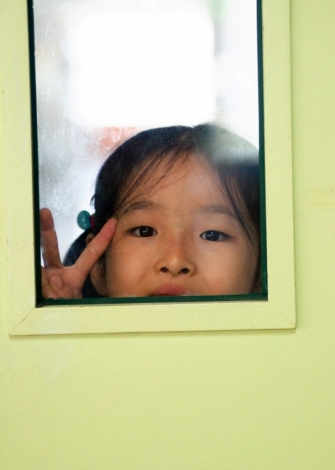Don't miss out on the best jobs!
Subscribe to HelpGoAbroad and weekly we will sent you an email with latest job posts. Provide your email address below
This is not a post about why you should not teach at a private institute, called a hagwon in South Korea. This is an article about why you should consider teaching through the English Program in Korea (EPIK), the leading, government-sponsored organization in charge of placing Guest English Teachers (GETs) in public elementary, middle, and high schools throughout Korea.
Orientation and Training
EPIK’s orientation is organized, relevant, and impressive. Participants go through long days filled with sessions on topics such as lesson planning, public school etiquette, and an introduction to Korean language.
Opening and closing ceremonies highlight cultural performances and displays. Excursions to try new foods, shop in local markets, and make traditional handicrafts are also part EPIK’s welcoming package.
Perhaps the best part of orientation is getting to mingle with hundreds of fellow teachers from all over the world, which would provide a chance to make lifelong friends from the start of your journey in Korea.
In addition to orientation, periodic online training is required of all EPIK teachers, as is attending regular meetings with other GETs in your area. Meetings are meant to help teachers share ideas, express concerns, and be informed.
Recognition
Because EPIK is connected to the Korean government, being part of the organization would already give you national recognition. EPIK also recognizes the hard work GETs do by facilitating award ceremonies and banquets of appreciation.
Competitive salary and benefits
South Korea is one of the best places to teach English throughout Asia when it comes to salary and incentives. GETs are not commonly offered the same benefits elsewhere.
Through EPIK you would enjoy advantages like furnished housing paid for, reimbursement for flights, medical coverage, contract renewal bonuses, severance pay, and many paid days of vacation.
Starting pay for GETs placed in popular cities like Seoul and Busan is lower than what could be made in lesser-known areas. Salary also goes up depending on experience and qualifications. And you would never have to worry about not getting paid on time.
Normal working hours
Contracts with public schools are fair and, well, normal. Expect to work a nine to five job, Monday through Friday. You would not have to instruct more than 22 teaching hours per week. The chance to take on more lessons for overtime pay is optional if a school has the budget for it.
Collaboration with Korean co-teachers
You would work with a team of Korean co-teachers, and in theory should never have to teach a class alone. Having a Korean teacher in the classroom helps with management and discipline. Many Korean English teachers are eager to assist with lessons. A few are not. Some may prefer to take the lead; others might want you to instruct everything. This really varies.
Working alongside local teachers is a great way to get to know a culture and language. Chances are you would even become quite close to your counterparts, and spend time with them outside of school as well.
Room to make a difference
The Korean public school system is not perfect. There is room to make a difference. Instead of complaining about slight dissimilarities, GETs should do something about it. Give suggestions and recognize areas you could make a positive change within.
Teaching underprivileged populations of Koreans
By working in Korea’s public schools you would be able to teach children who do not go to English academies for extra classes. Your English lessons and camps could be specifically designed to serve lower-level learners, which are usually the kids whose families cannot afford to send them to hagwons.
Time to lesson plan
Having to stay at school during breaks, even when there is no work to be done is not that bad. The term “deskwarming” is often used among GETs in Korea for this concept. The time is meant to be for lesson planning and preparation. GETs should advantage of it, and be thankful they do not have to work every minute they are on the clock.
Staff field trips and activities
Be prepared to play volleyball. As in, start training for it right now. Participating in staff volleyball matches, or some other sport played in a group is a big deal. Spending time together is important in Korean culture. You would go on staff fieldtrips as well, in addition to attending many dinners to bond with colleagues.
Become part of the community
Many Korean public schools are quite large. You might be teaching hundreds of students. This means you would instantly be inserted into a community where you are known and looked after. Parents would be eager to meet you, and opportunities to help kids practice English outside of the classroom abound.
Others have gone before you
You would not be the first foreign teacher to arrive. Do not reinvent the wheel. You could use what has been done, and adapt it to fit your needs.
Although national curriculums must be followed, what you would teach does not have to be directly out of a textbook. There are plenty of supplemental resources available to help make English lessons more engaging and fun.
Need more reasons?
Moving to South Korea could be one of best decisions you will ever make. You would likely grow personally and professionally. You would undoubtedly meet incredible people, and the connections you would gain might open up a lifetime of opportunities.
Applying to teach at a public school in South Korea through EPIK is a lengthy, competitive process. Going through a partnering agency, such as Greenheart Travel, to help you through each step is recommended. Recruitment for teaching positions happens twice a year to fill openings in September and March.
Sign in to publish a comment





Be the first to comment on this post.